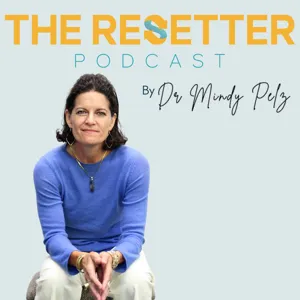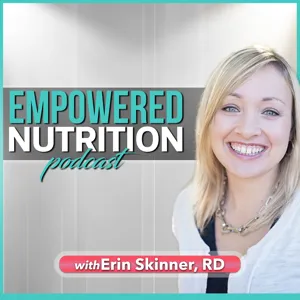Podcast Summary
Not All Calories Are Absorbed Equally: When consuming almonds, only 2/3 of the calories are absorbed, while the remaining calories interact with the microbiome in the colon, affecting the body differently.
The food industry's assertion that all calories are equal in contributing to adiposity and insulin resistance is not based on factual evidence. The body does not absorb all calories from food in the same way. For instance, when you consume almonds, only two-thirds of the calories are absorbed, with the remaining calories being carried to the colon where they interact with the microbiome. The fiber in almonds forms a gel on the inside of the intestine, acting as a secondary barrier to absorption, preventing some of the almond calories from being absorbed early on. The duodenum, where most nutrients are absorbed, is essentially sterile, so any unabsorbed calories move on to the colon and interact with the microbiome. This interaction can have various effects on the body, making it clear that not all calories are equal.
Fructose Processing in the Digestive System: When eating fruit, most fructose bypasses the liver, but too little fiber can lead to gut bacteria breaking down the mucin layer, causing negative health effects. Consume enough fiber to support beneficial bacteria while avoiding excess fructose.
The body processes fructose differently depending on where it's consumed in the digestive system. When you eat fruit, most of the fructose bypasses the liver and reaches the jejunum, where gut bacteria metabolize it for their own use. However, if you don't consume enough fiber, these bacteria may break down the mucin layer in the gut instead, which can have negative health consequences. The liver only processes fructose absorbed in the small intestine, so a significant portion of it escapes liver processing when it reaches the jejunum. This process can lead to lower insulin responses and fewer calories absorbed, but it also means that more fructose is available for gut bacteria. It's essential to consume enough fiber to ensure that these bacteria have the food they need to thrive without damaging the gut lining.
Balance of soluble and insoluble fiber for gut health: Consuming both soluble and insoluble fiber from whole foods is essential for optimal gut health, as they form a protective gel-like substance and support intestinal cells.
The health of your gut relies on having a balance of both soluble and insoluble fiber. The soluble fiber acts as the filling in a lattice structure formed by insoluble fiber, creating a gel-like substance that protects and supports the intestinal epithelial cells. Without both types of fiber, the gut may not function optimally. The food industry's addition of soluble fiber to processed foods may not be sufficient, as real food is the best source of both types of fiber. The idea that a calorie is not a calorie alone emphasizes the importance of consuming functional fiber through whole foods.
Exclusive member-only podcast with general health information: Quality podcast offers valuable health insights, but it doesn't replace professional medical advice. Listeners should consult healthcare professionals for medical concerns and be aware of potential speaker conflicts of interest.
The Quality podcast, released Tuesday through Friday each week, provides valuable information but is not a substitute for professional medical advice. It's important to consult healthcare professionals for any medical conditions. The podcast, available exclusively on the private member-only feed, offers member-exclusive benefits. However, listeners should be aware that the content is for general informational purposes only and does not establish a doctor-patient relationship. Additionally, the speaker discloses potential conflicts of interest and the companies he invests in or advises, which can be found on his website.





